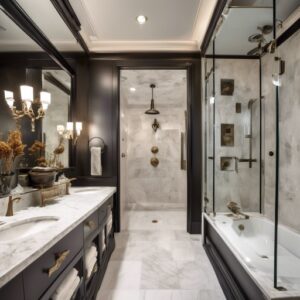As a hotel owner or manager, maintaining the integrity of your property is crucial for guest satisfaction and safety. While many aspects of hotel maintenance are visible and regularly attended to, the condition of the roof often goes unnoticed until a major problem arises. A well-maintained roof not only protects the interior of your hotel from the elements but also contributes to its overall aesthetic appeal and longevity.
In this article, we’ll discuss three signs that indicate your hotel may be in need of roof repair services. By being proactive and addressing these issues promptly, you can prevent costly damage and ensure the comfort and safety of your guests.
Water Leaks and Stains
One of the most obvious signs that your hotel’s roof is in need of repair is the presence of water leaks and stains on interior ceilings and walls. Water infiltration can occur for a variety of reasons, including damaged or missing shingles, deteriorated flashing, or improper installation of roofing materials.
It’s essential to regularly inspect the interior of your hotel for any signs of water damage, such as discolored ceiling tiles, peeling paint, or damp spots on walls. Pay close attention to areas near chimneys, vents, and skylights, as these are common entry points for water.
If you notice any signs of water intrusion, it’s crucial to act quickly to identify and address the source of the leak. Ignoring water damage can lead to mold growth, structural deterioration, and potential health hazards for your guests and staff.
Sagging or Uneven Roofline
Another telltale sign that your hotel’s roof is in need of repair is a sagging or uneven roofline. This can indicate structural issues caused by rotting or deteriorating roof decking, compromised support beams, or excessive weight from accumulated debris or snow.
Inspect the exterior of your hotel from ground level to assess the condition of the roofline. Look for areas where the roof appears to sag or dip, as well as any signs of bowing or buckling. In severe cases, you may also notice cracks or separation between roofing materials.
A sagging roofline not only compromises the structural integrity of your hotel but also increases the risk of roof collapse, especially during periods of heavy rainfall or snowfall. Prompt action is essential to prevent further damage and ensure the safety of your guests and employees.
Visible Signs of Wear and Tear
Over time, exposure to the elements can cause roofing materials to deteriorate and lose their effectiveness. Visible signs of wear and tear, such as cracked or curling shingles, blistering or peeling paint, and rusted flashing, are indicators that your hotel’s roof may be nearing the end of its lifespan.
Perform regular inspections of the roof surface to identify any areas of concern. Look for signs of damage or deterioration, including missing or damaged shingles, deteriorated sealant around vents and chimneys, and excessive granule loss on asphalt shingles.
Additionally, consider the age of your hotel’s roof and the manufacturer’s recommended lifespan for the roofing materials used. If your roof is approaching or exceeding its expected lifespan, it may be time to invest in repairs or replacement to ensure continued protection and performance.
Conclusion
Maintaining a sound and watertight roof is essential for the overall integrity and longevity of your hotel. By being vigilant and proactive in identifying signs of damage or deterioration, you can address issues promptly and avoid costly repairs down the road.
If you notice any of the signs discussed in this article, it’s important to consult with a professional roof repair services to assess the condition of your hotel’s roof and recommend appropriate repair or replacement solutions. Investing in regular maintenance and timely repairs will not only protect your investment but also ensure the comfort and safety of your guests for years to come.











